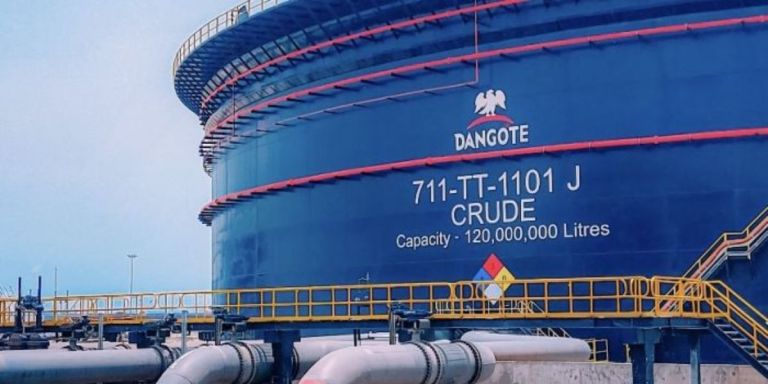Dangote refinery consumed enough domestic supply to keep around 13 per cent of Nigeria’s crude exports in the country in 2024.
This increased Nigeria’s domestic share of oil exports from two per cent in 2023 and slightly cut the country’s exports to Europe, according to Kpler.
Reuters reported yesterday that the development reduced Nigeria’s exports to Europe. It added that Nigeria also imported 47,000 bpd of United States WTI, which is said is unusual for a major net exporter.
It also reported yesterday that new refining capacity ramping up in Bahrain, Oman and Iraq as well as Dos Bocas in Mexico are also likely to soak up oil production in those regions.
According to the news agency, in Canada, the expanded Trans Mountain pipeline can now ship an extra 590,000 bpd to the Pacific Coast, lifting the nation’s waterborne exports to a record 550,000 bpd in 2024.
It said: “This has had a ripple effect: With increased Canadian crude flowing to the U.S. West Coast, refineries in the region bought less Saudi Arabian and Latin American crude, while direct shipments from Canada to Asian countries have cut re-exports from the U.S. Gulf Coast.
“While China has been Canada’s major buyer, the crude has also found importers in India, Japan, South Korea and Brunei and more Asian refiners are likely to purchase the oil.”
Reuter also reported that Europe’s refiners initially reduced Russian imports and increased both U.S. and Middle Eastern oil purchases after Russia invaded Ukraine.
It recalled that attacks on ships in the Red Sea following Israel’s war on Gaza pushed up the cost of shipping from the Middle East and that refiners stepped up imports from the U.S. and Guyana to record highs.
It added that exports from Iraq declined 82,000 bpd and United Arab Emirates exports fell 35,000 bpd in 2024. It noted that Europe added 162,000 bpd from Guyana and 60,000 bpd from the U.S.
“Escalating Middle East conflict around late September and fears of more sanctions from U.S. President-elect Donald Trump led to tighter supply and higher prices of Iranian oil. This prompted Chinese refiners to look at oil from West Africa and Brazil,” the report added.








